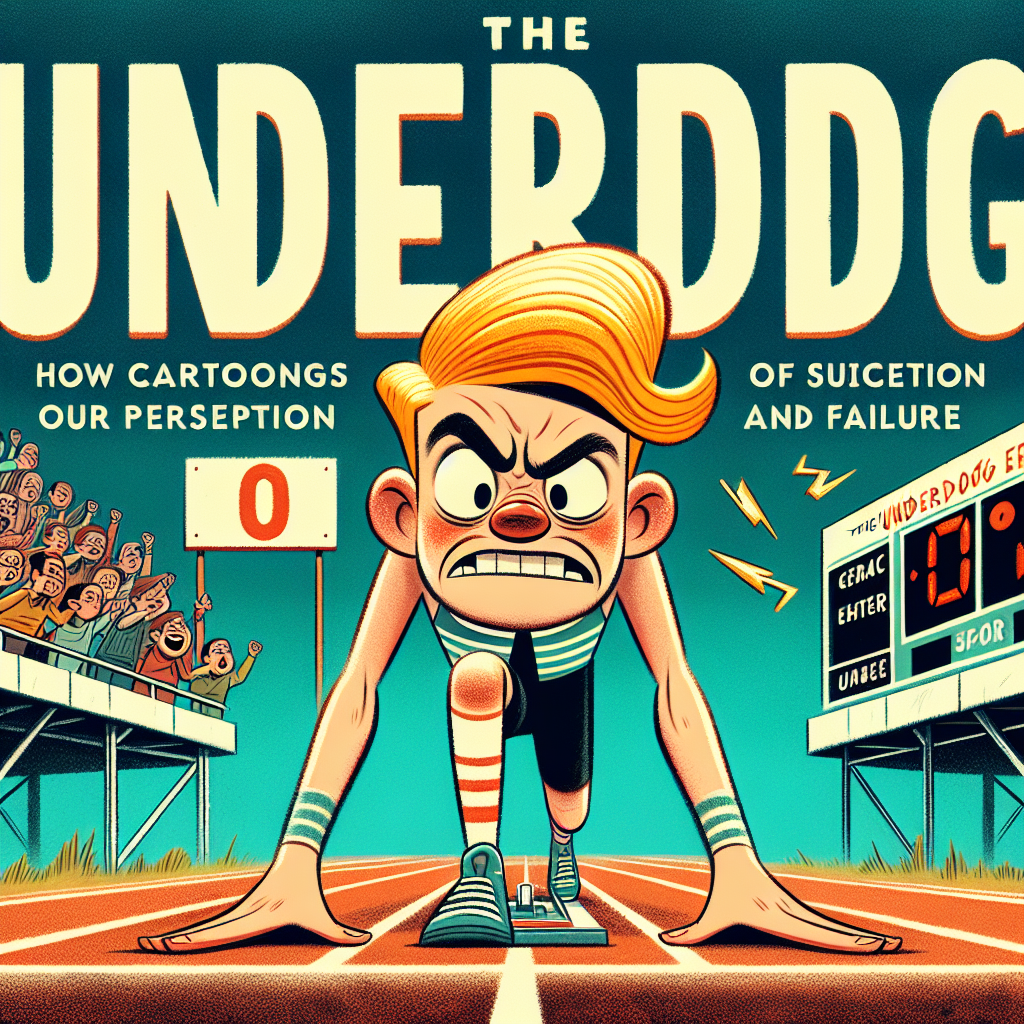The Underdog Effect: How Cartoons Shape Our Perceptions of Success and Failure
In the competitive world of sports, movies, and business, everyone loves an underdog story. We are drawn to the journey of someone who overcomes overwhelming odds to achieve success. These narratives inspire us and give us hope that we too can achieve greatness, despite the obstacles in our path. But where do our ideas of success and failure come from? Many of them are shaped by the stories we consume in childhood. Cartoons, in particular, have a significant impact on the way we perceive success and failure.
In this article, we will explore the underdog effect and how cartoons influence our perceptions of success and failure. We will delve into the psychology behind these narratives and discuss the long-lasting effects they have on our mindset. By the end, you will have a deeper understanding of how the underdog effect shapes the way we view the world around us.
The Allure of the Underdog
There is something undeniably captivating about the underdog narrative. Whether it’s the story of a small-town basketball team defying the odds to win the championship or a scrappy protagonist overcoming their fears to save the day, these stories resonate with audiences on a deep level. The underdog represents the triumph of the human spirit over adversity, and we can’t help but root for them to succeed.
The allure of the underdog lies in their relatability. We see ourselves in their struggles and triumphs, and their journey becomes a reflection of our own desires for success. We want to believe that we too can overcome our obstacles and achieve our dreams. This desire for hope and inspiration is why underdog stories have remained a staple in popular culture for decades.
The Role of Cartoons
Cartoons are an integral part of many children’s formative years. They are not just a form of entertainment; they also serve as a vehicle for important life lessons and moral values. As children, we absorb the messages and themes presented in cartoons, which can have a lasting impact on our worldview. Cartoons often feature underdog characters who face challenges and adversity, and through their perseverance, they ultimately achieve success.
These narratives teach children the importance of hard work, determination, and resilience. When children see their favorite cartoon characters overcome obstacles and achieve their goals, it shapes their understanding of success and failure. They learn to root for the underdog, to believe in the power of perseverance, and to understand that failure is not the end, but rather a stepping stone to success. These lessons become deeply ingrained in our psyche and influence the way we approach challenges and setbacks in our adult lives.
The Psychology Behind the Underdog Effect
The underdog effect has a profound impact on our perceptions of success and failure because it taps into our innate desire for justice and fairness. When we see someone who is underestimated and undervalued, we want to see them rise above their circumstances and achieve greatness. This desire for justice is deeply rooted in our psychology, as we are wired to root for the underdog in order to restore balance and harmony to the world around us.
Moreover, the underdog effect provides a sense of hope and optimism. It reinforces the belief that anyone, regardless of their background or circumstances, can achieve success. This mindset is crucial for personal growth and development, as it encourages us to adopt a positive outlook and persist in the face of adversity.
Frequently Asked Questions
Q: Do underdog narratives have an impact on our self-esteem?
A: Yes, underdog narratives can have a positive impact on our self-esteem. When we see underdog characters achieve success, it reinforces the belief that we too can overcome our obstacles and achieve our goals.
Q: How do underdog narratives influence our perceptions of failure?
A: Underdog narratives teach us that failure is a natural part of the journey to success. They help us reframe failure as a learning experience rather than a reflection of our worth.
Q: Are there any negative effects of the underdog effect?
A: While underdog narratives can be inspiring, they may also perpetuate the belief that success is only attainable through extraordinary circumstances. It’s important to balance these narratives with realistic expectations and a strong work ethic.
Q: Can the underdog effect be applied to real-life situations?
A: Yes, the underdog effect can be a powerful motivator in real-life situations. By adopting the mindset of an underdog, we can approach challenges with determination and resilience, ultimately increasing our chances of success.
In conclusion, cartoons play a significant role in shaping our perceptions of success and failure. The underdog effect teaches us the importance of perseverance, resilience, and the belief that anyone can achieve greatness. By understanding the impact of these narratives, we can better navigate the challenges we face in our own lives and embrace the power of the underdog.








+ There are no comments
Add yours